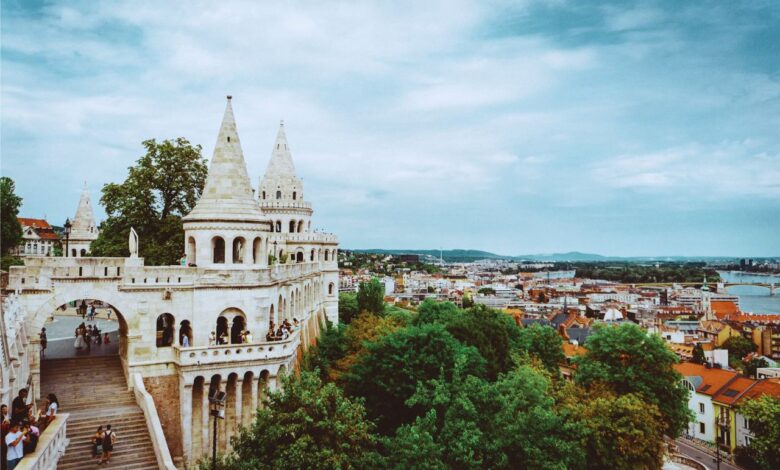Investment Ways of Obtaining Residence Permit in Hungary

Hungary has several ways for non-EU investors who want to obtain a residence permit. The Hungary Golden Visa program that allows that has been recently revamped. Let’s take a look at all the new options and ways to apply.
3 main benefits of getting Hungary Residence Permit
1. Renewable residence permit. Depending on the option, investors receive a 1- or 10-year renewable residence permit without the obligation to stay in Hungary, offering flexibility for maintaining international mobility while holding European residency.
2. Visa-free travel. The Golden Visa provides visa-free access to 38 European countries, ideal for business people and frequent travelers needing seamless movement across the Schengen Area.
3. Favorable taxation. Hungary has a 9% corporate tax rate, the lowest in the EU, allowing business owners to save significantly on profits and corporate activities.
Funds investment in Hungary
In 2024, Hungary introduced a €250,000 investment option in real estate funds as part of its Golden Visa program, making it one of the more accessible ways to obtain residency. Investors can purchase units in qualified real estate investment funds registered with the Central Bank of Hungary.
Option details:
- the minimum investment: €250,000;
- asset types: Hungarian or foreign real estate; shares in real estate companies; property rights; related financial instruments like bonds or deposits;
- fund requirements: at least 40% of the fund’s assets must be allocated to residential real estate in Hungary; a portion must be held in liquid forms such as bank deposits and government bonds.
The earnings from the fund’s performance, including rental income and appreciation, taxed at 15%.
Real estate investment in Hungary
Investing in real estate is a common way of getting a Hungary RP. The market offers a range of options. The option is set to become available under the Golden Visa program starting January 1st, 2025, as per paragraph 121 of the amendments.
Option details:
- the minimum investment is €500,000;
- no location, condition, or size stipulations as of now, but the living area is expected to be at least 6 m² per family person;
- investors can rent out their properties for additional income
The Hungary real estate market remains popular among the Golden Visa investors. It is affordable compared to other European markets: for example, the average price per square metre in Budapest is lower than in Vienna or Prague. The affordability allows investors to purchase larger properties or invest in multiple units for higher returns.
In 2023, property prices in Hungary increased by 5.8% overall. Second-hand homes rose by 5%, while new constructions saw an 11.5% rise. The steady appreciation is expected to continue, particularly in urban areas like Budapest. Rental yields are strong, ranging from 4% to 6% in central Budapest locations.
Key market drivers:
- high demand in regions like Budapest, driven by tourism, expats, and students seeking long-term rentals;
- demand from digital nomads, expats, and students;
- anticipation of the Golden Visa program, launching in 2025, with a minimum real estate investment of €500,000;
- the country’s strategic location, with Budapest well-connected to major European cities.
Charitable donation from investors in Hungary
As part of Hungary’s 2024 Golden Visa program, investors can opt for a charitable contribution to a Hungarian higher education institution. This option requires a €1 million donation, making it one of the more philanthropic choices within the residency program.
Option details:
- minimum contribution: €1 million;
- the donation must be directed to a Hungarian university or educational institution, supporting the country’s academic development.
Unlike real estate or fund investment options, the charitable contribution does not require managing assets or navigating the complexities of investment returns. It is a straightforward donation to a specified institution.
Business investment in Hungary
While not a part of the renewed Golden Visa program, this is also one of the ways to obtain Hungarian residence permit. The country offers residency by business registration. Applicants must invest a minimum of 3,000,000 HUF (approximately €7,800) in a Hungarian company, which is the required registered capital for a Limited Liability Company (LLC).
Steps to apply:
- Company registration. Set up a business and submit a detailed business plan, demonstrating that the company will generate at least €1,500 per month.
- Application. Submit the necessary documents, including financial projections, to the Hungarian authorities.
- Residence permit. Upon approval, a one-year residence permit is granted, which can be renewed for the additional two years.
The process takes about six months, and maintaining ownership of the company is necessary to keep the residency permit. Family members can apply for residency after one year.
Permanent residency and citizenship for investors in Hungary
For the Hungary Golden Visa holders. After holding permanent residency for a total of eight years, applicants become eligible to apply for Hungarian citizenship.
For the Hungary residence permit by company registration holders. Those investors are not eligible for permanent residency or citizenship directly through this program. The business registration route grants temporary residency, which must be renewed regularly, but does not provide a pathway to citizenship or permanent residency.
In a nutshell
Hungary offers multiple paths for residency and potential citizenship through its Golden Visa and business registration programs. The Golden Visa program provides a secure path to citizenship after 11 years, with a minimum investment in real estate or funds. Investors also benefit from visa-free travel and favorable tax rates.
Meanwhile, the business registration program grants only temporary residency, with no direct path to citizenship. It requires establishing a company with a smaller investment but lacks the long-term residency or citizenship benefits.





